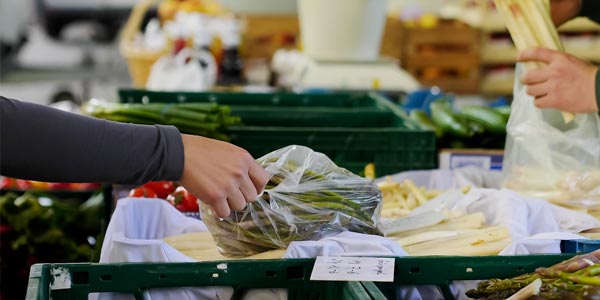On the Etiquettes of Buying and Selling

A fruit-crop should neither be sold nor bought until it is ready
(1) It is related by Abdullah bin Omar that “the Apostle of God forbade the selling of a fruit-crop until the fruit had begun to ripen. He forbade both the seller and the buyer.”
– Bukhari and Muslim
(In another version of it, appearing in Sahih Muslim, it is stated that the Apostle of God forbade the selling of the crop of dates until the dates had begun to turn red, and the selling of spikes of corn until the spikes had begun to turn white, and there remained no danger of their destruction).
Commentary
Just as in our country, the mango-crop is, often, sold much before it is ready, in Medina and other cultivable parts of Arabia, too, the crops of dates or grapes were sold before the fruit had begun to mature, and, likewise, the standing crops of grain were sold before the grain had ripened. The holy Prophet forbade it because it was quite possible that, after the transaction, the crop was destroyed owing to a natural calamity, like a squall or hailstorm, and the poor buyer was put to serious loss. A quarrel could, moreover, arise, in such a situation, between the buyer and the seller over the payment of dues. Hence, the holy Prophet has enjoined on his followers not to be a party to such deals.
(2) It is related by Anas that “the Apostle of God forbade the selling of fruits until lustre had come over them, On being asked what was meant by lustre coming over the fruits, the Prophet replied that it meant that the fruits had begun to turn red[1]. The Apostle of God, (then), observed: ‘Tell me, in return for what will the seller realise the dues from his brother, (the buyer), if the Lord withheld the fruits, i.e., the crop was destroyed, by the command of God, before it was ready for the market?’ ”
– Bukhari and Muslim
Commentary
According to authorities, the owner or seller of the grove should forgo the price altogether if the whole of the crop was destroyed, and return the money he might have received in advance. If, however, the loss has been partial an appropriate allowance should be made for it. The aim and object of these regulations is that due regard was paid to each other’s interest, and all business transactions were carried out in a spirit of goodwill and compassion.
(3) It is related by Anas that “the Apostle of God forbade the sale of (the crop) of grapes until the grapes had begun to turn black, and of a standing agricultural crop until the grains had become hard and were ready to be harvested.”
– Tirmizi
Commentary
Perhaps, during the days of the holy Prophet only the grapes that turned black on maturing were grown in Medina. That was why, he forbade the sale of the crop of dates until the fruit had started turning black. Now, both the white and black varieties of grapes are produced over there in abundance.
Together with grapes, the command has, also, been given, in it, about the standing crops of agricultural fields that these should not be sold before the crop was ready for harvesting.
Crops of groves should not be given on contract for a number of years
(4) It is related by Jabir that “the Apostle of God forbade the sale of the crop of a grove for some years, and he told that allowance be made for loss suffered through a sudden calamity.”
– Muslim

